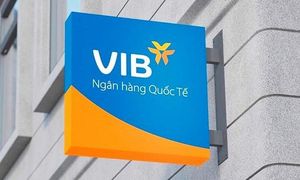Meta’s Threads microblogging platform is taking significant strides to merge with the fediverse, allowing users to connect more seamlessly with accounts from other decentralized networks. This latest update, as announced by Instagram CEO Adam Mosseri, enhances the interaction capabilities of Threads by permitting users to follow accounts from various fediverse servers. But as is often the case with new features, there are limitations.
Since its launch, Threads was conceived with fediverse integration as one of its core principles. The recent rollout expands this integration, letting Threads users follow and receive notifications for posts from accounts on alternative platforms within the fediverse ecosystem. Previously, users could only share their Threads content with fediverse accounts and receive comments from those users, without the option to follow them.
Despite this leap forward, the new features come with notable restrictions. Users can only follow fediverse accounts if those accounts have engaged with their posts on Threads, which means searching for users on other platforms is still not possible. Followers will need to navigate their way to relevant profiles through notifications of engagement on their posts.
One clear example of this upgrade showcases how if a fediverse user replies to your Threads post, you can now click through to their fediverse profile and follow them directly within the app. “You can see their posts by visiting their profile, and you can also opt to get notifications when they post,” Mosseri explained, adding, “More interoperability features are on their way, so stay tuned.” This suggests Threads is serious about building up its federated functionality.
While this update is exciting for users embracing the fediverse concept, it does not currently include popular platforms like Bluesky, which operates on the AT Protocol. This makes direct interactions between Threads users and Bluesky's ever-growing user base problematic. Bluesky is reported to have reached 24 million users, appealing especially to those from the tech and social media communities, and this surge leaves Threads scrambling to keep pace with features to retain and attract users.
For Threads, the push to facilitate connections across platforms is partly motivated by competition. With Bluesky stealing headlines and users' attention, it’s imperative for Threads to find ways to distinguish itself and gain traction. Recent updates have included features like Custom Feeds, allowing users to curate their experience more closely to their interests.
Meta is also working to make user engagement more customizable, as indicated by features testing to allow the selection of default feeds. These improvements hint at the company’s strategy to cater more effectively to user demands for personalized content, much like what might be experienced on more established platforms such as Twitter or Instagram.
Even as Threads forges its place within the fediverse, surrounding skepticism about Meta's motivations remains. Some critique the company’s entry as intrusive or misaligned with the ideals behind decentralization, which typically emphasizes user control over privacy and platform governance.
The feature set is indicative of Meta's broader strategy to maintain relevance amid shifting user preferences within social media landscapes. The significant pushback against Meta's role here is fascinating to navigate, even more so as users voice concerns about the inherent nature of decentralization versus the conventional structures often employed by large corporations.
Threads' integration with the fediverse effectively emphasizes Meta’s commitment to exploring other avenues of connection within social networks, reflecting the heightened demand for interoperability among these platforms.
While the recent enhancements signify progress, users will be keeping their eyes peeled for additional features aimed at bridging gaps between Threads and its competitors. There’s certainly plenty of speculation surrounding whether this direction will yield enough interest to result in meaningful growth over time.
Downloading the Threads app is free from the App Store, and ensuring its latest version is installed is necessary to access the new features. Threads continues to evolve, but the question remains—will it become the decentralization utopia some users seek, or merely another tool under the banner of Meta's corporate dominance?



